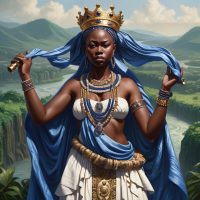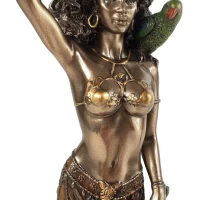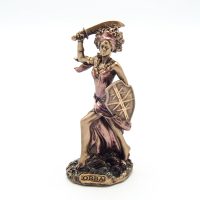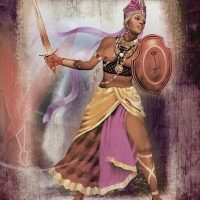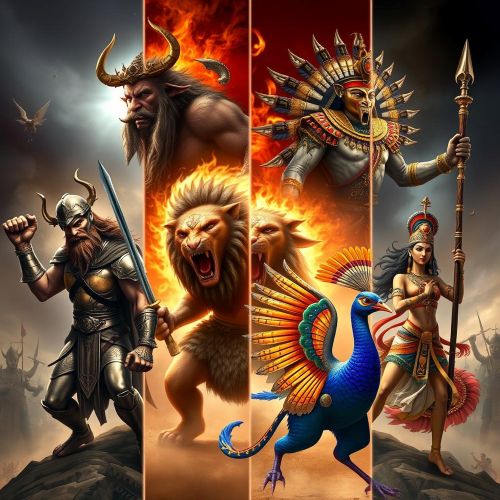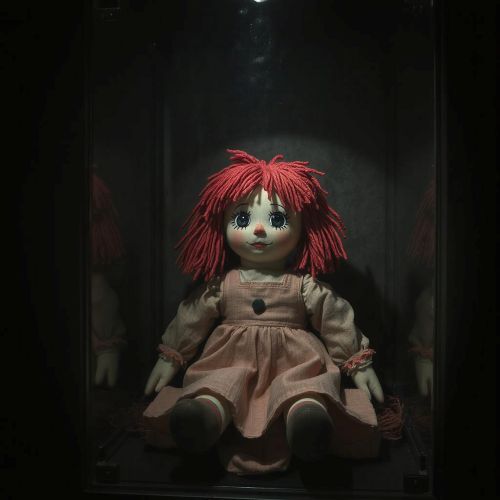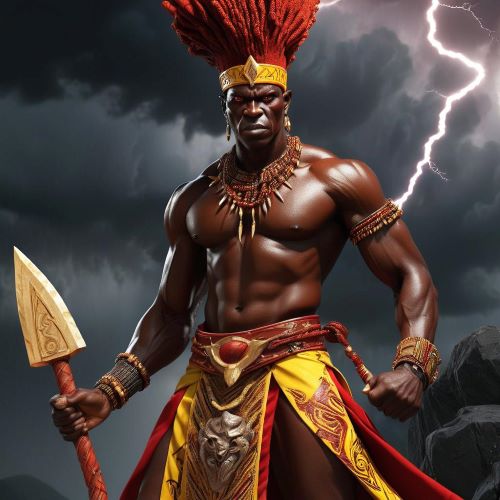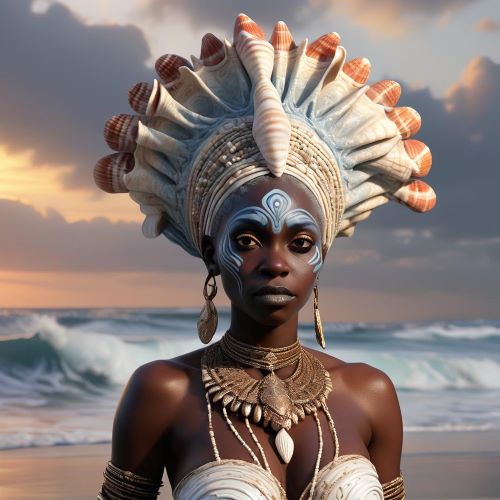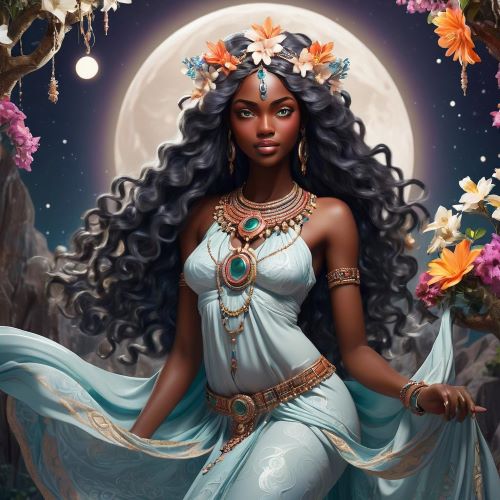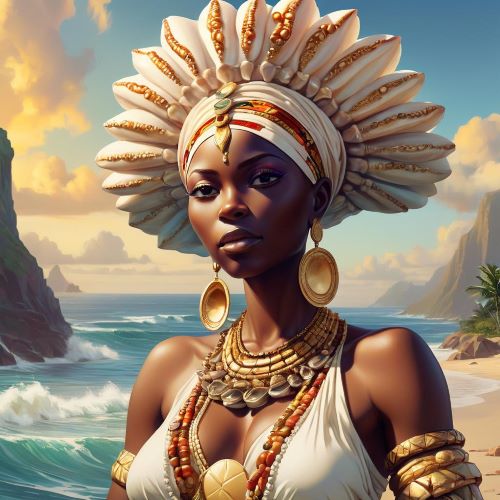Oba : The River Goddess
Listen
At a glance
| Description | |
|---|---|
| Origin | Yoruba Mythology |
| Classification | Gods |
| Family Members | Yemoja (Mother), Shango (Husband) |
| Region | Nigeria |
| Associated With | Rivers, Love, Lightning |
Oba
Introduction
Ọba, the revered Orisha of Yoruba mythology, commands admiration for her strength, wisdom, and steadfast devotion. She is closely associated with the River Oba, believed to have originated near Igbon, where her worship began. However, due to the tumultuous events of the 19th century, her centers of worship shifted to the more secure town of Ogbomosho. Known alternatively as Obbá, she embodies the essence of flowing water, symbolizing unwavering determination and feminine power. As a principal Orisha, her narrative is deeply interwoven with Yoruba culture, offering profound insights into resilience and the human experience.
Physical Traits
Oba, exuding regal grace and majesty, is often depicted as a striking woman adorned in resplendent attire suitable for her divine status as a queen. Her legendary beauty captivates and inspires awe in Yoruba mythology. Complemented by a dignified demeanor, her elegance symbolizes authority and wisdom. Artistic representations commonly feature her wearing a crown or adorned with intricate jewelry, signifying her royal lineage and spiritual sovereignty. Oba’s physical presence emanates power and grace, captivating the imagination of those encountering her mythological essence.
Symbolically represented by elements such as lightning, the sword, the flywhisk, and the water buffalo, she is revered in Ogbomosho as “Oba, who owns parrot tail feathers and fights on the left”. While depictions of Oba vary, she is generally portrayed as a beautiful woman adorned with royal regalia, often incorporating blue and white beads to signify her connection to the river. Symbolic representations may include her holding a knife or sword, symbolizing her warrior spirit, while covering one ear, alluding to a pivotal story in Yoruba mythology.
Family
Oba’s familial lineage intertwines her with the esteemed pantheon of Yoruba Orisha. Born of Yemaya, the formidable Orisha of the ocean and mother to all, Oba’s heritage is deeply rooted in divine power. While some narratives depict her as a solitary figure, others position her as the esteemed wife of Shango, the fiery god of thunder and lightning, and the third king of the Oyo Empire. Shango’s association with thunder and lightning underscores his formidable presence in Yoruba mythology. Oba’s role as Shango’s senior wife signifies her prominence within their union, symbolizing a harmonious balance of power and wisdom. Despite the challenges inherent in their relationship, Oba’s steadfast loyalty to Sango underscores the enduring strength of their bond amidst adversity. Additionally, Oba’s familial connections extend to other Orishas, further enriching her narrative and significance within the intricate web of relationships that define Yoruba cosmology.
Oba’s tale is primarily centered around her tumultuous relationship with Shango and the tragic incident involving the loss of her ear. While various versions of this myth exist, the core narrative remains consistent. In one rendition, Oshun, another wife of Shango, deceives Oba into believing that sacrificing her ear will garner her husband’s favor. Misled by this manipulation, Oba severs her ear and incorporates it into a meal for Shango. Discovering the gruesome truth, Shango is appalled and subsequently banishes Oba from his presence. Alternatively, some versions portray Oba’s sacrifice as an act of desperate love, where she endeavors to nourish a starving Shango. Despite the differing specifics, the story underscores themes of betrayal, manipulation, and enduring pain.
Interpretations of this myth vary, with some adopting a less literal perspective. For instance, some regard the “ear” as symbolic of self-respect or personal boundaries, which Oba relinquishes in a misguided attempt to please Shango. This metaphorical reading offers insight into broader themes of sacrifice and the complexities of relationships.
Other names
Oba’s name carries profound symbolism in Yoruba mythology. “Oba,” translating to “king” in Yoruba, reflects her regal nature and leadership attributes. Additionally, she is sometimes known as “Oba Gbaraye,” meaning “Oba who cuts off her ear,” a reference to a significant myth in her lore. In Latin America, she is recognized as Obá, while also being revered as the Orisha of the River Oba. Within Yoruba cosmology, divine beings often bear multiple names and epithets, each shedding light on different facets of their character and significance.
Among Oba’s alternative names is Obá-Olókun, highlighting her association with the ocean deity and its profound depths, emphasizing her role as a guardian of its mysteries. Furthermore, she is known as Oba Awo, underscoring her esteemed status as a venerable priestess and custodian of ancient wisdom. These alternative names enrich the tapestry of Oba’s mythology, providing deeper insights into her multifaceted essence and divine significance.
Powers and Abilities
As an Orisha, Oba embodies divine powers intrinsic to her role. Revered as the goddess of rivers, she epitomizes the strength inherent in water and feminine energy. Renowned for her unwavering determination and adept warrior skills, she is often invoked for her protective attributes. Oba’s association with the river encompasses various symbolic interpretations. Mirroring the perpetual flux of a river’s flow, Oba facilitates transitions and empowers individuals to surmount obstacles in life’s ever-evolving journey.
Like the purifying waters she governs, Oba possesses the ability to heal emotional and physical wounds, offering solace and renewal to those in need. The relentless current of a river symbolizes Oba’s resolute spirit, providing steadfast support to those confronting adversity. Reflecting the life-sustaining essence of rivers, Oba is synonymous with fertility and prosperity, invoked by women seeking blessings of abundance and the gift of children. Flowing waters serve as conduits for communication, and Oba facilitates clear intuition and enhanced communication channels, guiding seekers toward enlightenment and clarity. As a formidable deity within Yoruba mythology, Oba possesses a diverse array of powers and abilities that underscore her profound wisdom and strength.
Central to her divine essence is her dominion over rivers, lakes, and water bodies, symbolizing her sovereignty over the natural realm. Oba’s connection with water extends beyond its physical manifestations, encompassing its spiritual depths and transformative properties. Additionally, she is revered for her expertise in divination and herbal medicine, offering sage guidance and healing remedies to those in need. Oba’s legendary wisdom serves as a guiding light for seekers of truth and knowledge, instilling hope and resilience in times of turmoil and uncertainty.
Modern Day Influence
Ọba’s influence transcends the boundaries of the Yoruba people and her native land of Nigeria. Her worship has expanded to various regions in Latin America where religions like Santeria, Umbanda, and Candomble are practiced. In these traditions, Ọba is syncretized with Saint Catherine of Siena. Her narrative persists, serving as a testament to the strength and resilience of women across generations.
Across time and cultures, Oba’s impact remains profound. Her mythology serves as a wellspring of inspiration and guidance for individuals navigating life’s complexities with grace and fortitude. In contemporary society, Oba’s legacy thrives through diverse cultural expressions such as art, music, literature, and religious observances. Festivals and rituals celebrating Yoruba spirituality honor Oba’s story, fostering a sense of unity among believers. Furthermore, Oba’s archetype inspires artists, writers, and scholars to explore themes of power, identity, and transformation.
As a guardian of ancient wisdom and nature, Oba’s presence underscores humanity’s interconnectedness with the divine and the enduring strength found in faith and devotion. She remains a significant figure not only within Yoruba culture but also in its diaspora, particularly in nations deeply influenced by the Yoruba religion like Brazil and Cuba. Devotees seek her blessings for strength, healing, and personal transformation, often adorning themselves with blue and white beads as symbols of her favor.
Shrines dedicated to Oba often incorporate elements representing flowing water, such as blue cloths or symbolic river depictions. Offerings to Oba typically include blue or white foods and beverages, honoring her connection to water. Animals like ducks and pigeons may also be presented as offerings, reflecting her domain over rivers and lakes.
Oba’s story resonates with modern audiences grappling with themes of self-worth, resilience, and adaptability. Her association with flowing water serves as a poignant reminder of life’s constant changes and the necessity of facing them with grace and strength. While acknowledging the tragedies within her narrative, Oba is ultimately revered as a potent symbol of empowerment and solace for her devotees.
Related Images
Frequently Asked Questions
What is lorem Ipsum?
I am text block. Click edit button to change this text. Lorem ipsum dolor sit amet, consectetur adipiscing elit. Ut elit tellus, luctus nec ullamcorper mattis, pulvinar dapibus leo.
What is lorem Ipsum?
I am text block. Click edit button to change this text. Lorem ipsum dolor sit amet, consectetur adipiscing elit. Ut elit tellus, luctus nec ullamcorper mattis, pulvinar dapibus leo.
What is lorem Ipsum?
I am text block. Click edit button to change this text. Lorem ipsum dolor sit amet, consectetur adipiscing elit. Ut elit tellus, luctus nec ullamcorper mattis, pulvinar dapibus leo.
What is lorem Ipsum?
I am text block. Click edit button to change this text. Lorem ipsum dolor sit amet, consectetur adipiscing elit. Ut elit tellus, luctus nec ullamcorper mattis, pulvinar dapibus leo.
What is lorem Ipsum?
I am text block. Click edit button to change this text. Lorem ipsum dolor sit amet, consectetur adipiscing elit. Ut elit tellus, luctus nec ullamcorper mattis, pulvinar dapibus leo.

